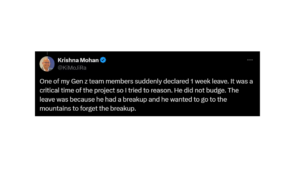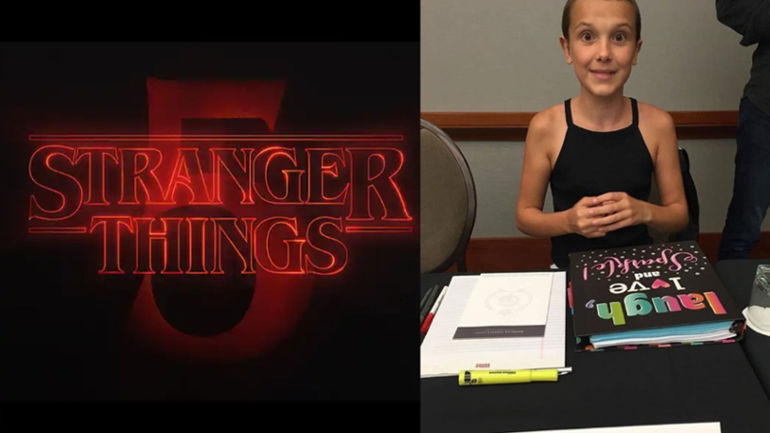A recent viral post has set social media abuzz after a manager, Krishna Mohan, criticized a Gen Z employee for taking a week-long leave to recover from a breakup. Mohan, sharing his frustration on X, revealed that his team member announced an abrupt break during a critical project phase to “go to the mountains” and “heal from his breakup.” The remark struck a nerve online, with many defending the employee’s right to mental health support, prompting a heated debate on work-life balance and generational perspectives on mental health.
Mohan’s post read, “One of my Gen Z team members suddenly declared a 1-week leave. It was a critical time of the project, so I tried to reason with him, but he did not budge.” He added, “The leave was because he had a breakup, and he wanted to go to the mountains to forget about it.” In a follow-up post, Mohan expressed frustration, stating, “Believe me, it was one-way communication. I had to manage the project repercussions alone.”

Social Media Responds With Strong Reactions
The response to Mohan’s comments was swift and pointed, as social media users rallied to defend the Gen Z employee’s decision. One user emphasized, “Better to give them a break than overwhelm them with deadlines when they’re already under the weather. Less suicidal tendencies, the better.” Another added, “So, according to you, mental health is nothing.” Users accused Mohan of disregarding mental well-being, suggesting that shifting workplace culture is crucial in acknowledging the need for emotional support.
Some reactions pointed out generational differences, with one user stating, “This is a boomer fallout issue. Over the years, even top performers were overworked, so now, the pendulum has swung in favor of prioritizing mental health.” Others echoed sentiments about flexibility, with one comment reading, “Unless the world is ending, deadlines can wait. Clients also understand.”
A Similar Controversy Over Wedding Leave
This discussion mirrored another recent social media uproar involving a British CEO who denied a two-day leave to an employee for their wedding, citing it as “poorly-timed.” Despite her attempts to clarify the decision, she faced backlash for what many perceived as an overly strict stance on personal time off. Social media users criticized her for “rage baiting,” emphasizing that employees deserve respect for life events, even during busy times.
The viral reactions highlight evolving expectations around work-life balance, with mental health taking center stage in discussions about acceptable leave. Both instances have underscored the need for employers to consider the well-being of their teams, especially as perspectives shift across generations.














